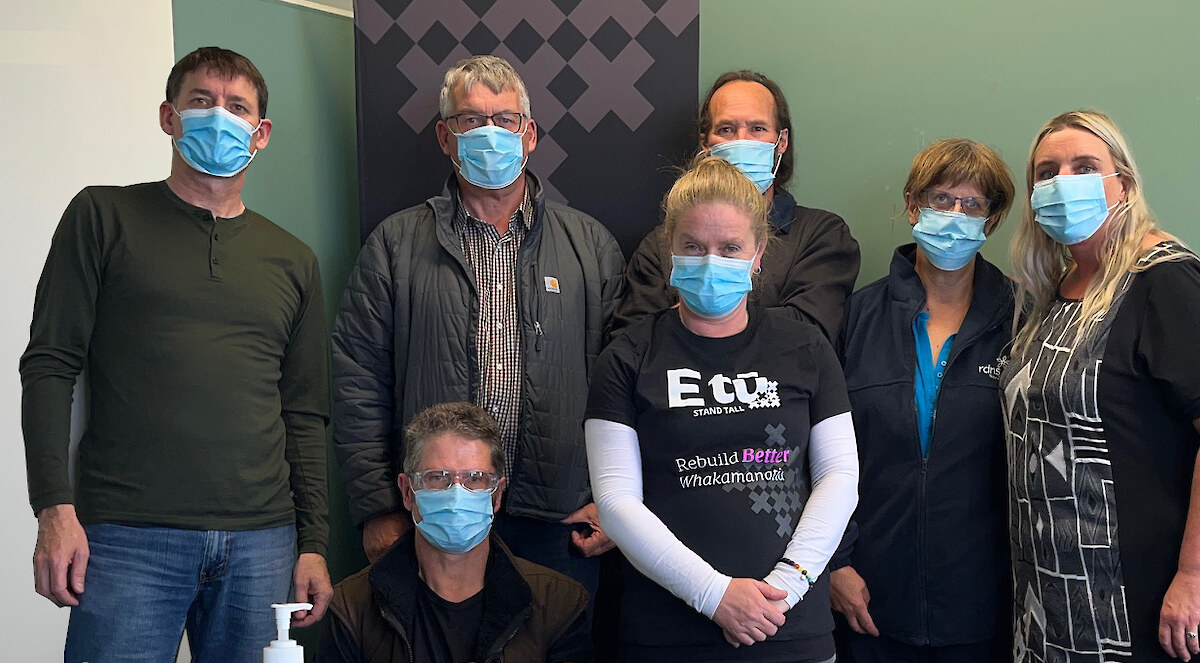Murihiku Regeneration presented at the E Tū Union – Decent Work Summit
Representatives from Murihiku Regeneration attended the online E Tū Union Decent Work Summit Mauri Tū, Mauri Ora! on Saturday 19 February 2022.
With over 200 participants online, the summit brought together E tū member leaders and community allies, business, and academics to discuss Decent Work and plan for the future. Speakers included union members, government ministers, community leaders, and academics, all working together to help shape the future of Decent Work.
Murihiku Regeneration’s Terry Nicholas and Ivan Hodgetts presented as part of the panel discussion on Just Transition and descent work. This provided an opportunity for Terry to describe the Murihiku Regeneration kaupapa and achievements to date. Ivan provided an overview of the Te Ara Aukati Kore Education and Training programme, and how this aligns with a decent life affirming work focus. Ivan stated that:
“This summit was a great opportunity to hear more about E tū’s vision for decent work. It’s great to be able to work with E tū and draw on the network of expertise, insight and vision for a future in which everyone is valued and rewarded for the work they do”.
 Southland attendees. Back row left to right: Ivan Hodgetts, Terry Nicholas, Martin Nepia, Pam King. Front row: Gideon van Vuuren, Karena Kelland, Anna Huffstutler.
Southland attendees. Back row left to right: Ivan Hodgetts, Terry Nicholas, Martin Nepia, Pam King. Front row: Gideon van Vuuren, Karena Kelland, Anna Huffstutler.
E tū has identified four key pillars that underpin our Decent Work thinking:
A decent income
- A minimum of a Living Wage for directly employed and contracted workers employed on a regular and ongoing basis
- Pay rates reflective of skills and responsibility
- Leave provisions, for holidays, sickness, bereavement, and parental leave recognised in employment agreements
- Equal pay
Secure work
- Provision for stable work, including social insurance
- Processes for restructuring and redundancy that mean workers are no worse off
- Options for training and development
- Guaranteed work hours
- Family-friendly approach to hours and location of work
A quality work environment
- Safe and healthy work, with the elimination of physical and psychological harm, and an end to violence, harassment, and discrimination
- Reasonable and managed time pressures, with the elimination of excessive hours, unmanageable deadlines or excessively intensive work
- Opportunities to learn, including on-the-job training
- Healthy workplace culture, including appropriate tikanga, recognition of diversity, good planning, and work organisation
Workers’ voice
- Promotion of collective bargaining and union representation
- Recognised structures for ongoing engagement with workers and union representatives
- Ability to genuinely influence decisions in the workplace, company, and industry
E tū Decent Work Charter
“Decent work sums up the aspirations of people in their working lives. It involves opportunities for work that is productive and delivers a fair income, security in the workplace and social protection for families, better prospects for personal development and social integration, freedom for people to express their concerns, organise and participate in the decisions that affect their lives and equality of opportunity and treatment for all women and men.”
International Labour Organisation
Posted: 22 February 2022
